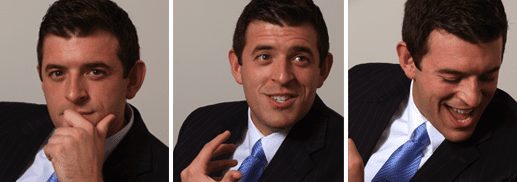18 Dec Insights: Eye in the Sky.
Reading Time: 2 minutesThe Eye in the Sky
By Jason Daily
When I’m coaching someone to step beyond their comfort zone and try on a new behavior, they almost always feel like it’s “too much” at first. “Too much” might mean they feel they are being too loud (projecting their voice), pausing for too long (too much silence) or exhibiting too much energy (sharing their ideas with more commitment). The interesting part is when we playback the video of these same behaviors, the client often realizes the gap between their perception and reality. There is a phenomena that usually comes to light, it sounds something like this: “Wow, I don’t look as exaggerated/over the top/intense as I felt.” This is corroborated by their peers, who often chime in to add that “too much” was “just right.”
Capturing the difference between perception and reality via videotaping is an instrumental part of the learning process. Golf swing coaches use it. Football teams videotape their practices. It’s even proven to be more effective than verbal feedback alone in improving trauma resuscitation procedures in emergency rooms (improvements occurred in HALF the time when using video feedback vs verbal feedback).
Often, someone in my program will say, “Oh we’re videotaping this? Do we really have to?” as the group nervously laughs. My response comes via an old high school football coach. He always reminded us that, “The eye in the sky doesn’t lie.” I still shudder when I hear myself say that phrase because the truth is biased by the realties that we construct. I knew in my heart when I told my coach that my technique was correct that it certainly was, without a doubt. Then, we’d watch the game tape…and there it was, not what I believed I would see…rather, what my coach told me he saw. Game tape was the most honest view…always.
So, who is your “eye in the sky?” Between colleagues, friends and technology, you have no excuse. Audio record your side of a phone conversation. Stand up and record yourself going through a presentation. Ask a trusted colleague for SPECIFIC feedback around behaviors. Be explicit in telling them what you are trying to accomplish, such as pausing for your thought to sink in, speaking more slowly so others can follow you, or connecting with individuals with your eyes. You’ll have a much better chance of getting objective feedback if you are specific about what they should look for.


